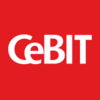CeBIT 2017: The Open Source Forum
CeBIT 2017: Open Source Forum Call for Papers
CeBIT is the largest international computer expo, concentrating on the state of the art in information technology. CeBIT 2017 takes place March 20-24 in Hanover, Germany.
The Open Source Forum has been one of CeBIT’s most popular lecture platforms for years, according to visitor surveys. In about 60 presentations, the visitor learns everything worth knowing about open source, Linux, and free software. The 2017 theme day is planned around “Cloud/OpenStack.”
The Call for Papers seeks practitioners who report on their experiences in the development and use of free software. In addition to cloud, virtualization, and OpenStack topics, the focus is on the Internet of Things (IoT), embedded systems, system administration, and automation. Your presentation, including a question and answer session, should be in German or English and last between 20 and 40 minutes.
Interested parties should contact the organizers using the online form, or you may email callforpapers@linux-magazin.de with a brief description of the talk and a cell phone number. An international jury of open source experts will determine the allocation of lecture slots. A few slots are reserved for sponsors of the open source forum (contact: judith.gratias-klamt@computec.de).
In the Open Source Park adjacent to the forum, small and medium-sized companies present Linux and open source solutions to business concerns (contact: h.engels@pluspol.de).
The Open Source Forum takes place at CeBIT on March 20-24. Computec Media GmbH accepts proposals for lectures through January 15, 2017. Visit us in Hall 3 at booth D35.
Sponsors of CeBIT Open Source Forum 2017 are c.a.p.e. IT, Tuxedo Computers, and Versatio Software.
Subscribe to our Linux Newsletters
Find Linux and Open Source Jobs
Subscribe to our ADMIN Newsletters
Support Our Work
Linux Magazine content is made possible with support from readers like you. Please consider contributing when you’ve found an article to be beneficial.

News
-
Introducing matrixOS, an Immutable Gentoo-Based Linux Distro
It was only a matter of time before a developer decided one of the most challenging Linux distributions needed to be immutable.
-
Chaos Comes to KDE in KaOS
KaOS devs are making a major change to the distribution, and it all comes down to one system.
-
New Linux Botnet Discovered
The SSHStalker botnet uses IRC C2 to control systems via legacy Linux kernel exploits.
-
The Next Linux Kernel Turns 7.0
Linus Torvalds has announced that after Linux kernel 6.19, we'll finally reach the 7.0 iteration stage.
-
Linux From Scratch Drops SysVinit Support
LFS will no longer support SysVinit.
-
LibreOffice 26.2 Now Available
With new features, improvements, and bug fixes, LibreOffice 26.2 delivers a modern, polished office suite without compromise.
-
Linux Kernel Project Releases Project Continuity Document
What happens to Linux when there's no Linus? It's a question many of us have asked over the years, and it seems it's also on the minds of the Linux kernel project.
-
Mecha Systems Introduces Linux Handheld
Mecha Systems has revealed its Mecha Comet, a new handheld computer powered by – you guessed it – Linux.
-
MX Linux 25.1 Features Dual Init System ISO
The latest release of MX Linux caters to lovers of two different init systems and even offers instructions on how to transition.
-
Photoshop on Linux?
A developer has patched Wine so that it'll run specific versions of Photoshop that depend on Adobe Creative Cloud.

